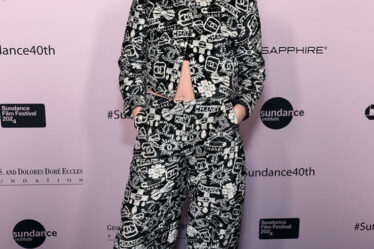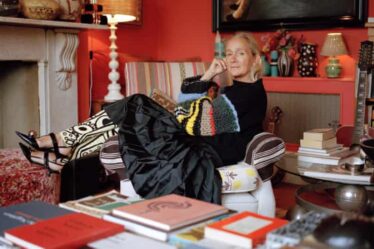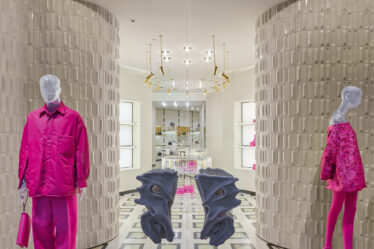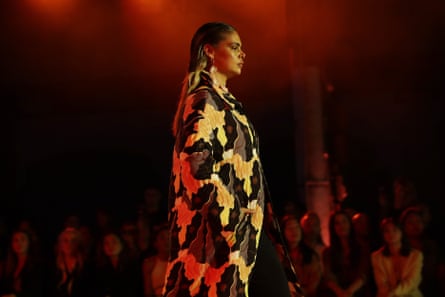
For the first time in Australian fashion week’s 23-year history, an Indigenous Australian designer will hold a standalone show.
Denni Francisco of Indigenous clothing label Ngali said it was “exciting, exhilarating and a little bit terrifying” to be holding her first solo show at the event, which takes place from 15 to 19 May.
“When you’re the first at doing something it comes with a degree of responsibility,” she said at the event’s schedule launch. “There are cultural elements that come with everything we do, so it’s not just the creativity, it’s about ensuring it all comes together in a culturally appropriate way.”

Francisco, a proud Wiradjuri woman, has twice won designer of the year at the National Indigenous Fashion Awards. It will also be her third time showing at Australian fashion week, after featuring as one of six designers on the Indigenous Fashion Projects runway in 2021 and 2022.
Francisco said although a standalone show is a much larger undertaking for the brand (she will be displaying 30 looks rather than the six to eight looks typically shown by a designer in a group show), it will still be a collective effort. “We’re already talking to the First Nations accessory designers and looking at what we can do with them.
“Everything that Ngali does, we’re looking at how we can bring in more of our mob, so it won’t just be Ngali. It will be more of our creatives coming together.”
Australian fashion week’s schedule is slightly pared down this year, with 45 designers presenting resort collections over a five-day program.
Natalie Xenita of global entertainment conglomerate IMG, which has staged Australian fashion week since 2013, said this schedule was based on feedback from the industry. “We’ve been careful to curate the schedule this year so that it’s … manageable, and that each designer that’s showing can get their cut through.”
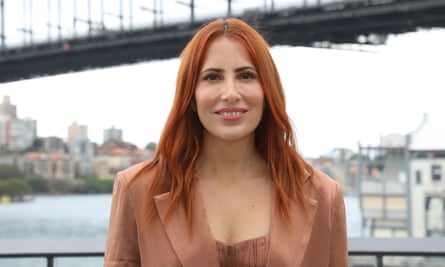
In 2021 and 2022, IMG did not charge designers to participate in fashion week, and Xenita said the same is true for 2023. “It’s a really important long-term strategy for us, because the industry is still recovering from that massive impact of the pandemic.”
Those shockwaves are still being felt on the local scene. Alice McCall, an eponymous womenswear brand that launched at Australian fashion week in 2004, went into liquidation in February.
Several designers showing this year will be celebrating business milestones. Gary Bigeni, a designer who recently pivoted to a made-to-order model, will be celebrating 20 years in the industry; Bianca Spender will be marking its 15th year in business; while Aje and Michael Lo Sordo – brands that came of age in the social media era – will be celebrating their 10th anniversaries.
after newsletter promotion
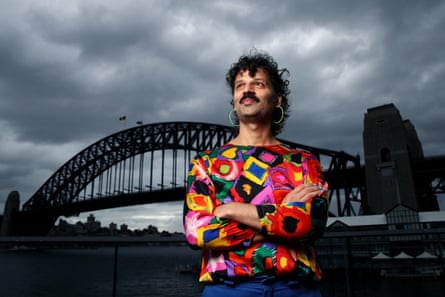
New Zealand designer Maggie Hewitt of Maggie Marilyn will hold her first Australian fashion week show, as one of only a couple of international brands on the lineup.
“It felt like the right moment, having opened our store [in Sydney] at the end of last year,” Hewitt said. “I’ve recently relocated to Sydney and have started putting roots down here.”
With her label known for transparency in its manufacturing process, and an “evergreen collection” of garments that do not change season to season, Hewitt said: “A new season or old season doesn’t exist to us.”
The runway show will have to strike a “balance”, she said. “Customers will still see a showcase like the one we’re doing in May, and still feel like all of their pieces are still completely relevant.”
Abroad and at the recent Melbourne fashion festival, designers have drawn ire from the public for rolling back efforts towards size inclusivity.
At Hewitt’s show, at least, this will not be the case, she said. “It’s so important to me that Maggie Marilyn feels like it’s a brand for everyone, so absolutely you will see size inclusivity celebrated on the runway.”

